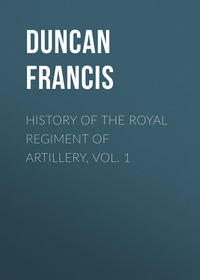Kitabı oku: «History of the Royal Regiment of Artillery, Vol. 1», sayfa 19
Bir şeyler ters gitti, lütfen daha sonra tekrar deneyin
Türler ve etiketler
Yaş sınırı:
12+Litres'teki yayın tarihi:
28 eylül 2017Hacim:
592 s. 204 illüstrasyonTelif hakkı:
Public Domain